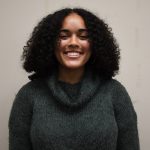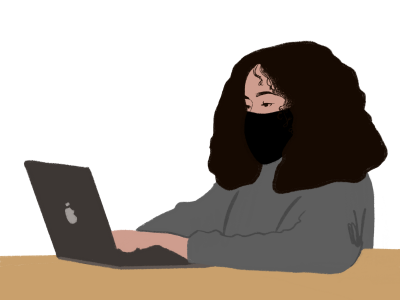“I pledge allegiance to the Flag of the United States of America, and to the Republic for which it stands, one Nation under God, indivisible, with liberty and justice for all.”
The Pledge of Allegiance has been drilled into almost every public school student since elementary school.

What that pledge fails to mention when it says “liberty and justice for all” is racism, oppression, sexism, homophobia and a slew of other institutionalized prejudices against minority groups that still exist today.
Those in power have consistently failed to acknowledge our country’s kryptonite: equality. Frankly, the United States just wasn’t meant to sustain it.
Our founding documents cater toward cisgender, heterosexual, white men. If you do not fit that description in every way, you have probably had to fight for equality and respect at some point in your life.
Even the Declaration of Independence — which claims all men are created equal with the rights to life, liberty and the pursuit of happiness — was not written with everyone in mind.
It most definitely was not written with Black people in mind.
In 1857’s Dred Scott v. Sandford case, the Supreme Court ruled a Black person — regardless of whether or not they are free — was not allowed to be an American citizen and, as a result, could not sue at the federal level. Chief Justice Roger Taney wrote the majority opinion and cited the Declaration of Independence as evidence for their argument:
“The language used in the Declaration of Independence, show, that neither the class of persons who had been imported as slaves, nor their descendants, whether they had become free or not, were then acknowledged as a part of the people, nor intended to be included in the general words used in that memorable instrument.”

This is a long-winded way of saying the existence of a Black person was one of property, undeserving of a right to citizenship.
It pains me to see how racism was built as the cornerstone of our society. Black people have been tortured, killed, silenced and terrorized every day. They’ve been raped, lynched and shot dead in the streets because of the color of their skin.
So, when people question the need for riots and undermine our anger, I question their self awareness. I question their ability to empathize with people who do not look like them. I question humanity’s ability to overcome our country’s deep-seated ignorance.
Because as much as a Black person’s skin carries the resilience of hundreds of years of racism, slavery, state-sanctioned killing and a government-issued war on drugs, a white person’s skin carry those years too — but with the weight of responsibility.
However, the fallacy of this country’s foundation is the idea that Black people are finite and that our existence can be summed up by racism and oppression. We are far more than that.
I look at Black people with reverence and joy. We are to be celebrated, every day, because for far too long the institutions in this country tried to define us with attributes that we are not.
We have been told we are not good enough, smart enough, beautiful enough, capable enough or worthy enough of equality.
I have been told my experiences with racism were false, inaccurate descriptions of what happened. I have sat in a room full of white men telling me racism is no longer a prevalent issue. I have been referred to as “the Black girl” and “Aunt Jemima” as a joke.
My experiences — though hurtful and angering — have all been easy. But a lot of Black people have not lived to tell the tale of their experiences with racism. For many, it cost them their life.
Again, if you question the need to dismantle racism in the U.S., I will further question you: Why are you comfortable? Why are you comfortable in your ignorance?
I have no patience for those who do not see what has been right in front of them this entire time. Your privilege should not be so much of a blanket that you feel warmth from the suffering of others.
My entire life, I have grown up in spaces in which I just don’t belong. I have constantly been defined in a way that makes the people around me feel comfortable, but I would like to diverge from that.
Instead of falling victim to the societal insecurities I’ve internalized, I find it important to define myself in terms of what I am and what I have overcome.
So, when I think of Black people, I think of versatility, strength and beauty. And it pains me to know the whole world does not see us this way.
It also pains me to think Boston University may not see us this way.
To the Black students at BU, I am sorry.
I am sorry you have been silenced and underappreciated, and I am sorry others have not listened to you.
I am humbled by the opportunity to lead this campus’ independent student newspaper and shoulder the responsibility of sharing the stories that need to be told.
I want Black voices to be amplified today and every day. I want you to walk on this campus and feel as if you actually belong. I want you to feel safe.
I want this University to be dedicated to anti-racism efforts always — not only at times when it feels convenient enough for them.
But, I would be naive to think my wishes hold enough power to change how our campus currently functions.
I alone cannot tackle the issues we face at BU, but I would like to think as a collective group we can. I will spare you the cheesy, “we’re all in this together” mentality because I know that’s not true.
I know some people will read over this article and not bat an eye. I know some people will forget every word I have written and go about their day.
For those who are listening, and those who care, thank you, but don’t just listen to me.
Listen to every voice in this paper. Listen to every Black person. Listen to our anger and our hurt.
Because if you listen, you’ll realize we’ve been repeating the same message for a long time.



















































































































